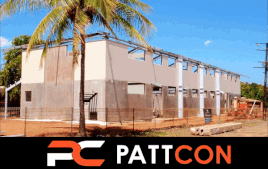The Gunner Government is looking for a consultant to undertake a social impact study on the potential benefits of a Northern Territory AFL team, including how it could enhance the resilience and long-term financial viability of the Territory, while considering the “impact on the level of democratisation in the NT, and the gendered division of production-orientated labour, and the impact on fauna connectivity”.
The Territory Families, Housing and Communities Department has released a tender for a consultant to evaluate the socio-economic value of the proposed team, including “investigating the functioning and integrity of government agencies, vibration, and the terrestrial climatic habitat”.
It was unclear what “vibration” meant.
The consultancy will also be considering the “aesthetic quality, property prices, the burden of national debt, and the loss of European and Indigenous cultural artifacts”.
It will also take into account “potential (sic) autonomy, stigmatisation or deviance labelling, feelings in relation to the project, and intergenerational impacts, where people have perceptions about their safety, fears about the future of their community”.
The Territory AFL team taskforce was appointed in October 2021, with its work to be guided by a 2019 report developed by Bastion EBA, which considered the feasibility of an NT AFL team. The taskforce’s findings are to be handed to the Chief Minister in December.
The inclusion of a Tasmanian team as the 19th in the AFL competition will be voted on by the other clubs later this year. Football media pundits expect it to be approved and the focus would then be on the NT having the next team in.
When AFLNT released its report into the viability of the team last June, which it as going to use to lobby AFL headquarters for a team, it said, the NT did not meet the conventional AFL licence measures of having a large and growing population and being a non-traditional AFL centre.
However, there was a “unique opportunity” to look at the expansion differently, and that the potential for a team to affect social and community change was “immense and is worthy of further investigation”.
Taskforce co-chairwoman and Sports Minister Kate Worden said the team would be a football pathway for everyone, no matter their gender.
“Our vision is for the Territory team to become the pathway for young Territorians of all genders to achieve their dreams of playing for a local AFL team at the highest level,” Ms Worden said at the time.
The recent tender document states that the social impact evaluation’s aim is to increase the taskforce’s understanding of the difference AFL programs make to the lives of Territorians.
“Secondly, it aims to understand how having an AFL team enhances the resilience and long-term financial viability of the Territory,” the document states.
“The evaluation will provide the foundation for strategic planning and good governance, and is critical to good decision-making in respect of the appropriate allocation of resources by funders.”
It states the evaluation would answer three questions:
What social and economic value will the proposed Territory AFL team achieve?
What negative social and economic impacts need to be mitigated and, when mitigated, what is the residual impact?
What additional options could be designed into the proposed project to create additional social and economic value?
“It is recommended that you hold an impact workshop to maximise the comprehensiveness and validity of the analysis, and to ensure all subsequent assessments (economic, environmental, sustainability) consider the social impacts appropriately,” the document states.
They listed “impact categories” as including community impacts on infrastructure, services, voluntary organisations, activity networks and cohesion.
Access to essential services, access to leisure and recreational facilities, aesthetic quality, crime and violence, availability of housing facilities, health and community well-being, adequacy of physical infrastructure, social quality of housing, personal safety and hazard exposure, and quality of life were also listed.
As well as cultural impacts on shared customs, obligations, values, language, religious belief and other elements which make a social or ethnic group distinct, commercial exploitation of culture, cultural affrontage, experience of being culturally marginalised, loss of language or dialect, and loss of European and Indigenous cultural artefacts.
As well as health impacts on mental, physical and social wellbeing, taking into account of potential autonomy, stigmatisation or deviance labelling, feelings in relation to the project, psychosocial health and cultural health.
It also include gender relations, the gendered division of production-orientated labour, gendered division of household labour, gendered division of reproductive labour, gender-based control over, and access to, resources.
It also lists investigating intergenerational impacts, and impacts on lifestyle, personal and property rights, equity, institutional, legal, political systems, quality of life, economic, and environmental, impacts on sense of place, aesthetics and heritage, perceptions of belonging, security and liveability, and aspirations for the future.






0 Comments